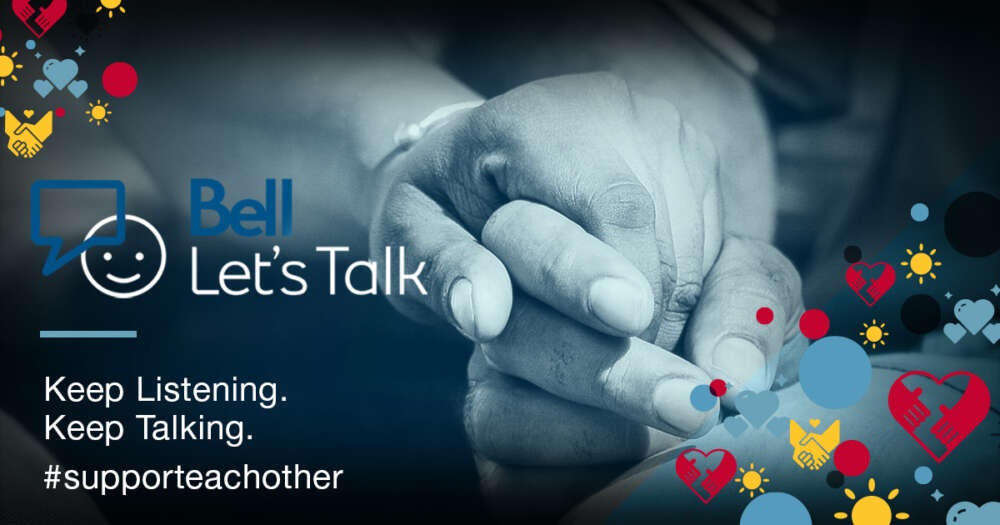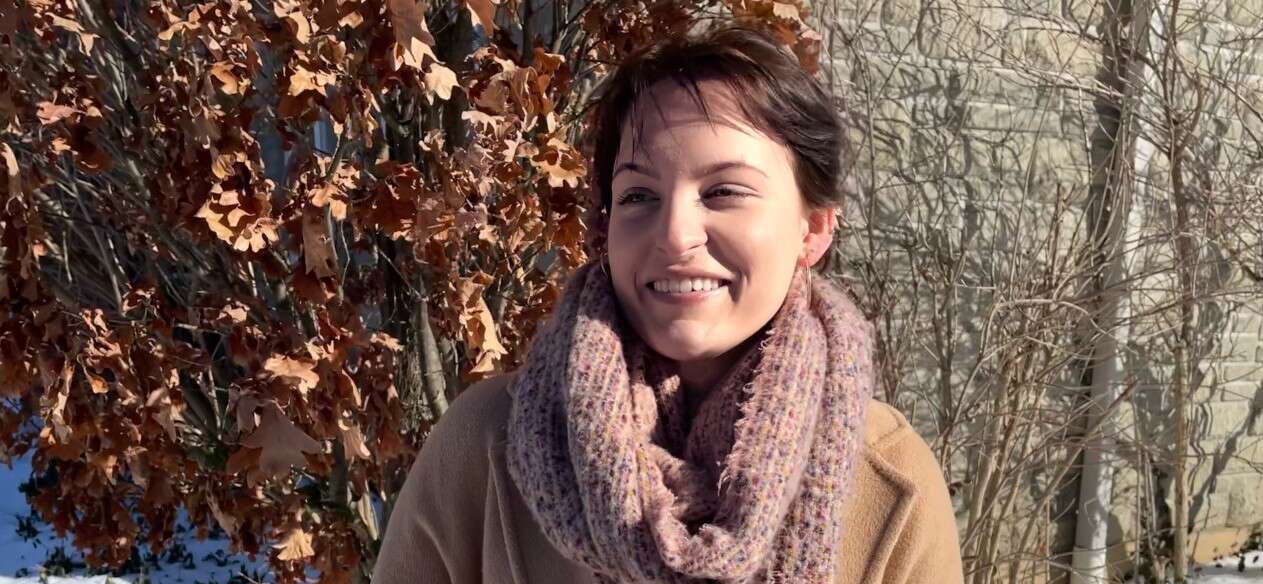For more than a decade, Bell Let’s Talk has been a day when Canadians have been encouraged to speak openly about mental health. But if it were up to third-year University of Guelph student Emma Hak-Kovacs, every day would be a “let’s talk” day.
A long-time volunteer with the Wellness Education and Promotion Centre at Student Wellness Services, Hak-Kovacs serves as senior peer leader for the student-run mental health awareness group Forward Minds. She leads workshops on mindfulness, meditation and more, and her team helps organize Shine Week and run the ShineCast podcast.
Volunteering to help others maintain their mental health has even convinced Hak-Kovacs to re-evaluate her own career plans and switch her major from biology to psychology.
‘No one talked about depression or self-care’
 As passionate as she is now about mental health, it wasn’t always that way. Hak-Kovacs spent much of her childhood and teen years in Hungary, Russia and Ukraine and doesn’t remember anyone ever talking about mental health.
As passionate as she is now about mental health, it wasn’t always that way. Hak-Kovacs spent much of her childhood and teen years in Hungary, Russia and Ukraine and doesn’t remember anyone ever talking about mental health.
“That topic and those conversations, they just didn’t exist there,” she said. “Even within my friend circles, no one talked about depression or self-care or anything like that. It just wasn’t something anyone talked about.”
But as someone who has struggled with stress and anxiety herself, Hak-Kovacs now wants to offer the support to others that was never offered to her growing up.
It’s why she has volunteered so much of her time over the last four semesters with wellness education and believes fiercely in the importance of being open with struggles.
“I think everyone should feel comfortable talking about their mental health. It’s just really so important,” she said. “And I think any day or event that encourages people to share their stories and take part in open conversations is a great thing. Every day should be ‘let’s talk’ day.”
‘It’s okay to ask for support’

It was only after Hak-Kovacs came to Canada in Grade 11 to attend boarding school that she began to learn about the importance of taking care of one’s mental health. She chose to volunteer in peer support in her boarding school home and quickly realized she enjoyed being a point of support to others.
“When you’re an international student like I am, whether it’s at boarding school or here at university, it can be really hard,” she said. “Most of us are far from home, without our families nearby. Many, like me, come from countries where the stigma about mental health is still strong. So I think it’s really important to let people know that it’s okay to ask for support.”
The stress of university is hard enough for many students, particularly for those who already struggle with mental health challenges. But these days, with the uncertainties and restrictions of an ongoing pandemic, it makes the outreach work that Hak-Kovacs and her team have been doing even more important.
“I think one of the biggest challenges of the pandemic for students has been the struggle to set boundaries. For many of us, our rooms are both our work area and our relaxation area, and it can be hard to shut off and take a break,” she said.
‘We say things to ourselves we would never say to others’
One of the main messages she tries to get across in her workshops is the need to take time for oneself and engage in self-care and self-compassion.
“That means allowing yourself to acknowledge your emotions and to accept them and take time to understand them,” she said. “It also often means changing the conversation we have with ourselves. We say things to ourselves we would never say to others, so it’s about being kinder to ourselves.”
It’s a lesson that Hak-Kovacs is working on embracing herself.
“I’m the type of person who tends to get carried away with stress. So I’ve learned a lot about my own mental health doing this. And I hope to pass on those lessons to others.
Information on mental health supports that are available to students can be found on the Student Wellness webpage.
